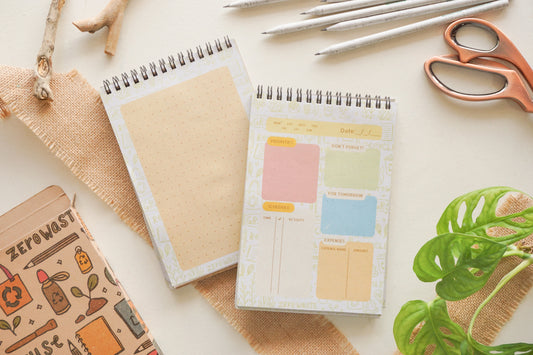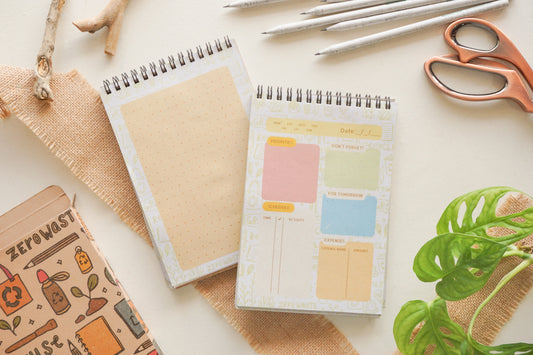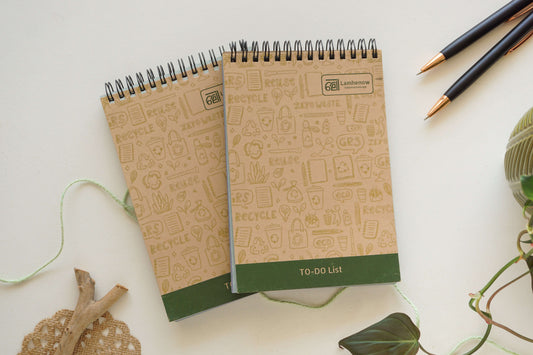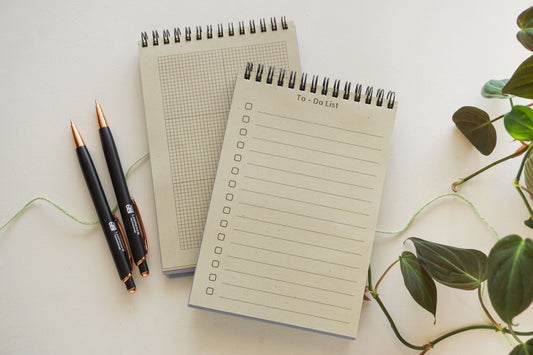
How to Start Reflective Journaling: A Beginner's Step-by-Step Guide

Reflective journaling serves as a powerful therapeutic tool that helps individuals gain fresh perspectives on their most profound life experiences. We've discovered that this intentional practice of writing can significantly enhance self-understanding while offering creative solutions to challenging problems.
When we engage in a reflective journal, we essentially create a dialog with ourselves that encourages critical thinking and deep self-analysis. Additionally, the process helps us make sense of important events, understand the reasoning behind various occurrences, and align our future actions with our core values. For instance, students in academic settings often use reflective writing for weekly entries based on course content, which ultimately boosts their critical thinking skills and prepares them for assignments and exams.
Throughout this beginner's guide, we'll walk through the essential reflective journaling steps that can help you analyze experiences, record their impact, and plan thoughtful future actions. Whether you're louoking to improve your writing skills, stay organized, or simply understand yourself better, we've got you covered with practical advice to start your reflective journaling journey today.
What is Reflective Journaling and Why It Matters
""Journaling is the single most effective tool you may ever find for deeper intimacy with yourself and others."" — SARK (Susan Ariel Rainbow Kennedy), Bestselling author, artist, and creativity advocate
Unlike ordinary diary entries that simply record daily events, reflective journaling involves structured introspection about our experiences, thoughts, and emotions. At its core, reflective journaling is a personal practice where we write to make sense of life events by asking deeper questions about what happened, how we responded, and how these experiences change us over time.
The formula for effective reflection is surprisingly simple: consistency + intentionality. Through regular writing sessions focused on specific aspects of our experiences, we create a safe space to explore our inner landscape. This process differs fundamentally from keeping a diary; while diaries document what happened, reflective journals help us understand what those events mean to us personally.
Reflective journaling offers numerous benefits that contribute significantly to personal development:
- Improved mental health - Providing a space to process experiences can reduce symptoms of stress, anxiety, and depression
- Enhanced self-awareness - Regular reflection helps identify strengths, weaknesses, and behavioral patterns
- Better decision-making - Analyzing past choices leads to more informed future decisions
- Emotional regulation - Understanding emotions enables more mindful responses to situations
The practice of reflective journaling promotes metacognition—thinking about our thinking—which allows us to spot patterns, identify biases, and make decisions aligned with our long-term goals. Furthermore, this intentional writing creates a bridge between our experiences and learning, connecting past actions to future choices.
I've found that reflective writing serves as a vehicle for deeper reflection, slowing down our learning process and increasing our sense of ownership over personal growth. Indeed, this seemingly simple practice acts as a powerful tool for continuous improvement, helping us extract valuable insights from everyday experiences.
Whether you're seeking personal growth, professional development, or simply greater clarity about your life's direction, reflective journaling offers a structured approach to transform personal experiences into meaningful learning opportunities.
Step-by-Step Guide to Start Reflective Journaling
Beginning your reflective journaling practice requires a structured approach rather than simply writing whatever comes to mind. Through my experience helping others start this meaningful practice, I've developed these essential steps to guide you:
1. Choose your medium wisely
Select a journal format that feels comfortable—whether a beautiful notebook, digital app, or voice recording. The key is accessibility; keep it close so you can capture thoughts before they fade. Many find handwriting creates a stronger connection to their emotions, as it's "more connected to the movement of the heart."
2. Create a dedicated space and time
Designate a specific location for journaling—a quiet corner, comfortable chair, or peaceful nook. Set aside 15-30 minutes initially, gradually building to longer sessions as the practice becomes familiar. Morning or evening often works best for establishing consistency.
3. Establish a simple ritual
Begin with a small ceremony that signals it's journaling time. This might involve lighting a candle, making tea, or taking three deep breaths. These rituals help transition your mind into a reflective state.
4. Structure your entries thoughtfully
Effective entries typically follow this pattern:
- Describe the situation objectively
- Explore your emotions and reactions
- Analyze why you responded this way
- Connect to broader patterns or values
- Plan future actions based on insights
5. Use prompts to overcome blocks
On days when you're stuck, try prompts like "What am I feeling right now?" or "What challenged me today?" These questions open doorways to deeper reflection.
Start your reflective journaling with Lamhenow products today their specially designed journals include guided prompts that make beginning this practice effortless.
Remember to review previous entries periodically. This retrospective reading often reveals patterns and growth that weren't apparent initially. Most importantly, release perfectionism your journal is for your eyes only, allowing complete freedoms of expression without judgment.
Prompts and Examples to Inspire Your Writing
""Writing in a journal each day allows you to direct your focus to what you accomplished, what you're grateful for and what you're committed to doing better tomorrow."" — Hal Elrod, Author of 'The Miracle Morning', motivational speaker, and productivity expert
Journal prompts serve as valuable doorways to deeper reflection, particularly when you're facing a blank page. Effective prompts guide your writing while encouraging authentic exploration of thoughts and experiences.
Types of Reflective Journal Prompts
Depending on your goals, different categories of prompts can stimulate meaningful reflection:
- Self-discovery prompts focus on understanding your core self: "What makes me feel excited to get up in the morning?" or "What do I really want in life?"
- Stress relief prompts help process emotions: "What am I frustrated with right now?" or "Name five ways I handle a bad day."
- Gratitude prompts shift perspective: "What is my most cherished possession?" or "List qualities I have that I'm proud of."
- Growth-oriented prompts encourage forward movement: "What did I learn today?" or "What could I do differently next time?"
To overcome writer's block, try the WHAT-SO WHAT-NOW WHAT framework:
- WHAT? Describe what happened objectively
- SO WHAT? Why does this matter to you?
- NOW WHAT? How will you apply this insight?
Sample Reflective Journal Entry
Here's how a thoughtful entry might look:
May 4, 2023
Today I experienced an unexpected encounter with Justin, an old college friend. Our conversation brought back memories of university days and made me realize how much time has passed. This chance meeting reminded me how valuable maintaining connections is, despite how busy life gets. Next week, I'll reach out to two other friends I've lost touch with.
Start your reflective journaling with Lamhenow products today their journals include specially designed prompts that make reflection effortless.
Remember, reflective writing differs from descriptive writing. While description tells what happened, reflection explores why it matters and how it changes you. The most powerful reflective writing uses phrases like "I realized..." "This challenged my thinking about..." and "Next time I will..." to demonstrate genuine introspection and personal growth.
Conclusion
Reflective journaling stands as a powerful tool for personal growth and self-discovery. Throughout this guide, we've explored how this intentional practice goes beyond mere diary keeping to become a vehicle for deeper understanding of our experiences and emotions.
Starting a reflective journaling practice might feel challenging at first. Nevertheless, the step-by-step approach we've outlined makes this valuable habit accessible to everyone, regardless of writing experience. Remember that consistency ultimately matters more than perfection.
After establishing your journaling routine, you'll likely notice subtle shifts in your self-awareness. Many people report enhanced clarity about their values, improved decision-making abilities, and greater emotional resiliense. Additionally, the practice creates a valuable record of your personal growth journey that you can revisit for years to come.
Most importantly, reflective journaling adapts to your unique needs. Whether you seek stress relief, creative inspiration, or deeper self-understanding, this practice evolves with you. The prompts we've shared serve as starting points, but your journal will eventually take on a life of its own, guided by your personal experiences and insights.
We encourage you to begin your reflective journaling practice today. Therefore, select your preferred medium, find a quiet moment, and write your first entry. The journey toward greater self-awareness starts with that single step.
Undoubtedly, as you continue this practice, you'll discover that reflective journaling becomes less about the words on the page and more about the transformative process happening within you.
FAQs
Q1. What is reflective journaling and how is it different from regular diary writing? Reflective journaling is a structured practice of writing that involves analyzing experiences, thoughts, and emotions. Unlike regular diary writing, which simply records events, reflective journaling focuses on understanding the meaning behind experiences and how they impact personal growth.
Q2. How often should I write in my reflective journal? It's recommended to set a regular writing schedule, starting with 15-30 minutes daily or a few times a week. Consistency is key, so choose a frequency that works best for your lifestyle and gradually increase the duration as you become more comfortable with the practice.
Q3. What are some good prompts to start reflective journaling? Some effective prompts include: "What did I lear today?", "How did I handle a challenging situation?", "What am I grateful for?", and "What could I do differently next time?". These questions can help stimulate deeper reflection and self-analysis.
Q4. Can reflective journaling improve my mental health? Yes, reflective journaling can have positive effects on mental health. It provides a space to process experiences, which can help reduce stress, anxiety, and depression. Additionally, it enhances self-awareness and emotional regulation, contributing to overall well-being.
Q5. Do I need special materials to start reflective journaling? No special materials are required to start reflective journaling. You can use any medium that feels comfortable, whether it's a notebook, digital app, or even voice recording. The most important aspect is choosing a format that you'll use consistently and that allows for easy reflection and review.





